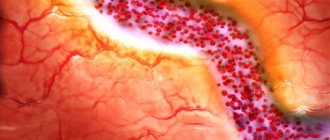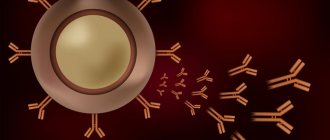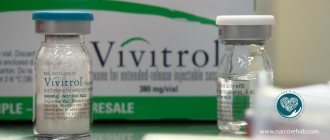People drink alcohol in different ways - some more, some less, in different conditions and for different reasons. In what case are we talking about alcoholism? Why are some people contemptuously called “drunks,” while others are considered “the life of the party”? What is alcoholism, and what types does it happen? More on this later in the article.
- Alcoholism
- What is alcoholism? Definition
- Etiology of alcoholism
- Alcoholism in psychiatry
- The concept of "alcoholic"
- Alcoholism syndromes
- Diseases caused by alcoholism
- Risk factors
- Faces of alcoholics (photo)
- Types of alcoholism
- Social alcoholism
- Chronic alcoholism
- Adult alcoholism
- Household alcoholism
- Vodka alcoholism
- Female alcoholism
- Teenage alcoholism
- Beer alcoholism
- Genetic alcoholism
- Stages of alcoholism
- initial stage
- Middle stage
- Severe stage
- Symptoms of alcoholism
- Consequences of drinking alcohol
- Alcohol addiction
- What is alcohol addiction
- How is alcoholism diagnosed?
- Causes of alcohol addiction
- Mental dependence on alcohol
- Physical dependence on alcohol
- Diagnosis of alcoholism
- Stages of treatment for patients with alcoholism
- Prevention of alcohol use
Alcoholism
According to statistics, Russians, on average, drink 14-200 liters of alcoholic beverages per year. These figures include both children and older people, so if they are not taken into account, the rate of alcohol consumed becomes much higher.
In addition, according to the same statistics, about 50,000 users die from surrogates. And huge amounts of money are spent on treatment, rehabilitation and recovery from injuries sustained while drunk.
However, the topic of alcohol addiction is not only a Russian social problem, but also a foreign one. It is noteworthy that experts have long noticed: the higher the wealth and standard of living of the population, the greater the prevalence of alcoholism.
Still have questions? Call us!
8
Free consultation and appointment
What is alcoholism? Definition
The term “alcoholism” means a pathological condition of the body, which is accompanied by an irresistible physical and mental craving for drinking alcoholic beverages. At the same time, a person has problems controlling the amount of drinking and behavior, withdrawal syndrome develops, gradual degradation of personality and destruction of the body occurs. It is believed that this is an irreversible and progressive condition, which can only be stopped by complete and conscious abstinence from alcohol.
Etiology of alcoholism
The origin of alcoholism is based on social relationships. Family, relatives, and work teams are of great importance. It can be:
- family troubles, scandals, loneliness of a person in the family, the presence of a drinking loved one;
- the tradition of “washing” a purchase, transaction, holidays;
- drinking “friends”;
- the need to relax, to “rest” after a working week or shift.
The prerequisite is a hereditary factor - if there are close relatives who drink, the likelihood of abuse increases.
Alcoholism in psychiatry
In psychiatry, the concept of “alcoholism” is a disease characterized by an irresistible physical and mental attraction to alcoholic beverages. Addiction (an annoying desire to drink) is accompanied by a hangover syndrome, progressive personality changes, and the development of alcoholic psychoses. The latter include mental disorders that develop mainly in the second and third stages of the disease.
Sources
- Bolz S.N., Adasme M.F., Schroeder M. Toward an Understanding of Pan-Assay Interference Compounds and Promiscuity: A Structural Perspective on Binding Modes. // J Chem Inf Model - 2021 - Vol - NNULL - p.; PMID:33899463
- Exterkate M., de Kok NAW., Andringa RLH., Wolbert NHJ., Minnaard AJ., Driessen AJM. A promiscuous archaeal cardiolipin synthase enables construction of diverse natural and unnatural phospholipids. // J Biol Chem - 2021 - Vol - NNULL - p.100691; PMID:33894204
- Wei X., Chen X., Chen L., Yan D., Wang WG., Matsuda Y. Heterologous Biosynthesis of Tetrahydroxanthone Dimers: Determination of Key Factors for Selective or Divergent Synthesis. // J Nat Prod - 2021 - Vol - NNULL - p.; PMID:33891392
- Drew D., North RA., Nagarathinam K., Tanabe M. Structures and General Transport Mechanisms by the Major Facilitator Superfamily (MFS). // Chem Rev - 2021 - Vol - NNULL - p.; PMID:33886296
- Wang H., Liang J., Yue Q., Li L., Shi Y., Chen G., Li YZ., Bian X., Zhang Y., Zhao G., Ding X. Engineering the acyltransferase domain of epothilone polyketide synthase to alter the substrate specificity. // Microb Cell Fact - 2021 - Vol20 - N1 - p.86; PMID:33882930
- Wang L., Maranas CD. Computationally Prospecting Potential Pathways from Lignin Monomers and Dimers toward Aromatic Compounds. // ACS Synth Biol - 2021 - Vol - NNULL - p.; PMID:33877818
- Simeon S., Ghislat G., Ballester P. Characterizing the relationship between the chemical structures of drugs and their activities on primary cultures of pediatric solid tumors. // Curr Med Chem - 2021 - Vol - NNULL - p.; PMID:33874867
- Seo H., Lee JW., Giannone RJ., Dunlap NJ., Trinh CT. Engineering promiscuity of chloramphenicol acetyltransferase for microbial designer ester biosynthesis. // Metab Eng - 2021 - Vol - NNULL - p.; PMID:33872779
- Chen X., Chen J., Feng J., Wang Y., Li S., Xiao Y., Diao Y., Zhang L., Chen W. Tandem UGT71B5s Catalyze Lignan Glycosylation in Isatis indigotica With Substrates Promiscuity. // Front Plant Sci - 2021 - Vol12 - NNULL - p.637695; PMID:33868336
- Porokhin V., Amin SA., Nicks TB., Gopinarayanan VE., Nair NU., Hassoun S. Analysis of metabolic network disruption in engineered microbial hosts due to enzyme promiscuity. // Metab Eng Commun - 2021 - Vol12 - NNULL - p.e00170; PMID:33850714
Why clients trust us:
Free consultation
We have been working for more than 8 years
We work all over Russia
We guarantee anonymity
We help in difficult cases
Help for relatives
The concept of "alcoholic"
An alcoholic is a person whose way and meaning of life becomes the use of alcoholic beverages. Unlike a drunkard, he does not stop when a hangover appears, but looks for a new dose that can alleviate his condition. As a rule, an alcoholic (especially at the last stage) does not care what to do with a hangover - any alcohol-containing liquids are used. Due to psychological degradation, he cannot and/or does not want to cope with the addiction on his own, so he needs outside help.
Alcoholism syndromes
Dependence on alcoholic beverages is accompanied by certain conditions, each of which has not only a name, but also a medical code.
- 10.3, 10.4 Alcohol withdrawal syndrome with or without delirium (hallucinations, delusions).
Pathological changes in the psyche and body, accompanied by weakness, headache, nausea, vomiting and other symptoms of intoxication. It develops not during consumption, but after stopping or reducing long-term intake of alcohol-containing drinks due to the accumulation of toxic metabolic products. - 10.2 Dependency syndrome.
The emergence of a painful desire to take alcohol by any possible means. Loss of control over the amount of drinking, one’s own behavior and emotions. - 10.6 Amnestic syndrome.
Decreased memory for events of various dates (most often recent ones).
Diseases caused by alcoholism
Alcoholism affects all human organ systems, but the nervous and digestive systems suffer first. Among the diseases caused by alcohol abuse, we can note, for example, the following:
- gastritis, ulcer, erosion of the gastric mucosa;
- atrophy of the mucous membrane of the digestive tract and, as a result, vitamin deficiency, metabolic disorders;
- cirrhosis of the liver;
- acute pancreatitis (mortality reaches 70%);
- cerebral edema;
- nephropathy, renal failure;
- cardiomyopathy;
- strokes.
People suffering from alcoholism have an increased risk of developing cancer.
Risk factors
Risk factors include a wide variety of circumstances and situations that cause changes in a person’s mental state, forcing them to take alcohol-containing drinks. It can be:
- lack of values, life goals;
- low self-esteem, uncertainty;
- low stress resistance;
- state of protest (in the family, at work, in society);
- a familiar environment, for example, a childhood spent among drinkers;
- laziness, reluctance to do something (study, work, etc.);
- early sexual intercourse.
Most often, the development of alcohol dependence is caused by several factors simultaneously.
Faces of alcoholics (photo)
A drinking person experiences not only internal, but also external changes, especially noticeable on the face. The most typical symptom is swelling of the eyelids and wings of the nose. Swollen red eyes, enlarged pores, and a yellow-bluish-red skin tone become more noticeable the longer a person abuses ethyl alcohol. The facial muscles gradually atrophy - losing tone, lips and cheekbones begin to sag. Enlarged pores become a “gateway” for infection, which ultimately leads to the appearance of rashes and pimples.
Main causes of the disease
Personal qualities and external indicators are associated with the appearance of the problem:
- strength of will;
- family attachment;
- individual habits (inclination);
- interests of friends;
- specific features.
A large number of negative sources leads to addiction. Doctors identify several main root causes:
- Social causes of alcoholism. Often the environment and company influences receptivity. Many narcologists highlight social orientation as a central component in the formation of alcohol addiction. Advertising of alcohol in the media is a factor in creating a fashionable image - “a man or a woman with a bottle.” The level of wealth is one of the reasons for drunkenness. Material difficulties give rise to melancholy. Strong drinks are a means to forget daily troubles. Traditional consumption for the New Year, birthdays (holidays) is turning into a system. Then not a single dinner is complete without alcohol. Dissatisfaction with work and personal life is gradually becoming the causes of the disease. The social circle is the main social element in the evolution of the individual from citizen to fallen subject.
- Psychological. People who are mentally traumatized from an early age are predisposed to alcoholism. Horrible parents neglect their children. This greatly influences the child’s behavior and shapes his character in the future. As a result, such a subject grows up lacking self-confidence (“loser complex”), which leads to irresistible cravings. Suspicious and weak-willed people are more likely to become drunk. Permanent depressive state due to: teenage socialization, life circumstances, family difficulties, stress, chronic ailments. This leads to serious consequences, isolation, and despondency. Comforts and gives joy - a liquid that contains ethanol.
- Physiological. Schizophrenia, nerve disorders, traumatic brain injuries - narcologists believe that such indicators cause a predilection for alcohol. Biological complications during pregnancy can form negative deviations.
- Genetic. Transfer of hereditary qualities from parents to children. Such groups are at increased risk. Violations are caused by a child copying the life principles of his mother or father. At home, it is a tradition to use, for boys and girls it follows that such behavior is normal. A misunderstanding of reality develops. Decisions are made inadequately, so a complete projection of ancestors is observed.
The information described allows us to identify the main conditions for the development of the disease:
- young age;
- the surrounding world (the presence of “bad company”);
- education or genetics;
- biological disposition;
- mental disorders;
- chronic abuse.
Another factor in the increase in the number of people susceptible to negative phenomena is considered to be overstrain (emotional, physical). Today's rhythm of life forces people to work without rest and to increase their work schedule. In moments of relaxation, whiskey and gin seem like relaxing elixirs. Doses increase over time. Such self-deception, in fact, contributes to the development of alcohol addiction. Sometimes national parameters or those related to the natural environment are emphasized.
Types of alcoholism
Usually an alcoholic is presented as a degenerate, unkempt person who is constantly drunk. However, there are several types of alcoholism, and many drinkers do not even know they have the disease.
Social alcoholism
Periodic gatherings with a friend over a bottle of wine for a “heart-to-heart conversation”, “relaxation” after a working day with like-minded people in the garage, regular “celebration” of the end of the work week with colleagues - these and other situations that are repeated regularly are a sign of social alcoholism. It is important that neither the drinkers themselves nor those around them consider such moments to be something out of the ordinary. A habit gradually forms: a person loses the ability to spend time with loved ones without drinking. Moreover, social alcoholics rarely drink alone; as a rule, they are looking for someone for company, and they themselves offer a reason and alcohol (or do not refuse such offers).
Chronic alcoholism
In this case, we are talking about alcohol dependence that has already developed and is carefully fixed in the subconscious. Not only mental changes are observed, but also somatic disorders. When leaving the binge, delirium tremens (delirium) and/or encephalopathy are possible, characterized by visual and auditory hallucinations, delirium, and panic. An alcoholic constantly needs another dose of alcohol. His interests disappear, his judgment changes, his intelligence decreases.
Still have questions? Call us!
8
Free consultation and appointment
Adult alcoholism
Stress in the family, at work, problems with children or the loss of a loved one gives rise to the need for “forgetting” and/or “relaxation”, and this is most easily accomplished with the help of alcoholic beverages. Adult alcoholism develops unnoticed, but begins quite consciously, unlike teenage alcoholism (out of curiosity or for company). An adult can go to work and maintain a presentable appearance for a long time. But if you don’t stop in time, the consequences of degradation are inevitable: you will be fired from your job, your appearance will speak for itself.
Household alcoholism
It is based on traditions, habits, attitudes accepted in a particular society, in the family. For example, celebrating holidays, meetings, drinking after a hard day at work, in honor of the next match and for any other reason. Typically, a household alcoholic does not abuse unless there is a reason. He does not have a painful dependence on alcohol.
Vodka alcoholism
This type of alcoholism is characterized by the consumption of strong alcoholic beverages. The difference from beer and wine is faster psychological degradation: a person loses interest in life, atypical traits appear in his character, for example, aggressiveness, and indifference to loved ones appears. It should be noted that vodka alcoholics recognize their addiction more quickly than in the case of wine or beer, which means they are more amenable to treatment.
Female alcoholism
Alcohol addiction in women is often associated with troubles in their personal lives and family. Unlike men, women often drink alone, preferring that no one knows about it. Drinking alcohol while carrying a child is especially dangerous - he may develop congenital alcoholism, or congenital alcohol syndrome - developmental defects, mental retardation, and a tendency to drink alcohol in the future. Due to the psychological characteristics of women, treatment requires a longer time.
Teenage alcoholism
The physical and mental state of a teenager has not yet reached full maturity, so drinking alcoholic beverages quickly leads to the development of addiction. If in an adult an addiction turns into a disease after about 6-10 years, then in adolescence 2-3 years are enough. Changes occurring in the body become noticeable faster and more clearly. Teenage alcoholism causes severe psychosomatic, neurological and cognitive disorders.
Beer alcoholism
The attitude towards beer as a harmless light drink is wrong. Of course, unlike vodka, beer does not lead to personality degradation, and the drinker retains his interests and views. However, gradually the only interest remains - to drink beer, and the physical condition worsens:
- obesity develops;
- muscles atrophy;
- blood pressure increases;
- swelling occurs (of the face, limbs);
- The capillaries on the face expand and it becomes red.
In addition, beer alcoholism can easily turn into wine and/or vodka alcoholism and become chronic.
Genetic alcoholism
The gene responsible for the guaranteed development of alcoholism has not been discovered. The disease is not inherited, but there is a genetic predisposition, proven by numerous experiments. That is, if a person had drunkards in his family line, under certain conditions he can also become an alcoholic. The problem of finding the gene responsible for the development of alcohol dependence has been studied for a long time, but scientists have not yet been able to solve it.
Beer
Dependence occurs as a result of long-term and regular consumption of alcoholic beers. A characteristic feature of beer alcoholism is the patient’s persistent denial of the presence of addiction, which is explained by high social tolerance for beer, which many consider completely harmless and “almost” non-alcoholic.
Since personal and intellectual degradation are atypical for the beer form of alcoholism, usually only psychological coding is recommended for such patients.
Stages of alcoholism
Addiction develops in four stages. The first degree of alcoholism is prodromal - there is no dependence, a person drinks alcohol on holidays, after work, and can give up alcohol at any time.
initial stage
The next stage is the preclinical, or early stage. Sometimes cases arise when the amount of drinking is uncontrollable. The body's resistance to ethanol increases. Physical dependence, mental and somatic disorders are not yet expressed. A novice alcoholic can stop abuse at any time.
Middle stage
Physical dependence occurs and amnesia occurs. Drinking becomes regular, personality changes occur, and scandals often occur in the family and at work. The help of a doctor is required, but under certain circumstances it is possible to quit drinking on your own.
Severe stage
At this stage, tolerance to alcohol decreases; a small dose is enough to intoxicate. The need for ethanol overshadows everything else. Signs of damage to the nervous system, psyche, and internal organs are clearly expressed. Alcohol becomes a necessity for the body. The ability to work and intelligence decreases. You cannot do without medical help.
The most important
Alcoholism is a chronic disease that leads to the destruction of the human body and psyche.
There are many risk factors for its development, including negative environmental influences. Tags:
- Alcohol
- Addiction
3 comments • To leave a comment you must be an authorized user
- fan_73 Yes, alcoholism can only be fought with the help of medicine. But the most important thing is the desire of the person himself to quit. And this is all advertising that people in Rus' have always drunk. It came from the Americans through the communists. They are trying to destroy the Russian people, and also with the help of drugs and cigarettes. People, don’t believe American advertising of cigarettes and alcohol, they are all against us.
- erevan Yes, alcoholism is the scourge of our time. People themselves must realize and accept that they are alcoholics. And when they accepted this, they embarked on the path of self-healing from this scourge.
- Ms_Vicky is written quite interestingly, everything is on topic. But after reading the symptoms of alcoholism, I came to the conclusion that not just a third, but the majority of the population of our country are novice alcoholics, including me, although I don’t drink often. It's sad though(
Symptoms of alcoholism
The symptoms of alcoholism depend on the stage of the disease. It may appear in the form of:
- intoxication after a small dose;
- memory lapses;
- looking for reasons to drink;
- lack of gag reflex;
- the need to relieve a hangover with another dose of alcohol;
- insomnia.
External signs (bags under the eyes, changes in skin color, tremors of the limbs and others) develop later, around the end of the second stage.
Consequences of drinking alcohol
Long-term intoxication of the body with ethanol leads to pathological destruction of all organ systems. Alcoholics experience:
- delirium tremens, hallucinations, delirium;
- epilepsy, depression;
- cirrhosis of the liver, stomach ulcer, duodenal ulcer, gastritis;
- cardiomyopathy, hypertension;
- tuberculosis.
Encephalopathy often develops: headaches, dizziness, deterioration of memory and thought processes. Immunity decreases. Domestic injuries occur that can result in disability or death.
Fighting the problem
The correct attitude towards the patient is a guarantee of productive treatment in the future. The subject consumes, the crisis is visible to the naked eye. You cannot treat such a person with hostility - it causes the opposite reaction. You need to understand the situation, delve into it, and seek help from a medical center.
We need to pay attention to acute challenges early on. State laws are required to clearly regulate the processes of sale and consumption of alcohol. This is not a restriction of consumer rights - it is a forced measure. Selling low-alcohol drinks and vodka to minors should result in severe penalties.
In the morning you want to drink not coffee or juice, but “something else” - it’s worth thinking about. It is important to be aware of your own difficulties and be willing to fight them. Family members’ perception of the problem must be adequate. Difficulty should not be encouraged or avoided. They won’t solve it on their own, and delaying it will only lead to complications. Relatives and the patient must be partners in confronting challenges. Subject to the patient's full determination, consent to the procedures. The results of the work of narcologists will be satisfactory.
Treatment of alcoholism and withdrawal from binge drinking is a complex procedure. Drunkenness is prolonged consumption of strong drinks, which can be accompanied by severe intoxication and metabolic destruction. With systematic abuse, mental disorders and other consequences are possible, including Delirium tremens and death.
Sometimes you have to resort to treatment at home. A narcologist will anonymously arrive at the specified address and provide appropriate drug treatment services. The meaning of the session:
- confidential conversation;
- examination (measurement of blood pressure, checking the heart function, determining the level of glucose in the blood);
- Intoxication is relieved using therapeutic methods - detoxification. Purpose: oral administration of tablets, standard dropper, injections.
Toxins are removed from the body, water-salt balance is restored:
- B vitamins are introduced;
- sedatives, tranquilizers, antidepressants and other drugs;
- glucose, saline solutions.
Complex cases are expected to be observed in a hospital. Risk group for which the session is accompanied by constant supervision:
- people over fifty;
- with mental disorders;
- cores;
- asthmatics;
- gastrointestinal problems;
- pathologies.
The most effective methods are coding. Carried out by:
- injections, injections under the shoulder blade;
- sewing in an implant;
- taking medications;
- complex Dovzhenko method;
- hypnosis
The doctor will support you through medications or hypnotic influence and return you to normal life. You should not practice self-medication or self-deception. Only expert help is a guarantee of recovery.
Evolution has distinguished people from other creatures and given them the ability to think rationally. We never learned how to get rid of negative habits on our own. The issues described take precedence among negative social phenomena due to the general availability of products. Imaginary joy and fun quickly turn into fear and aggression.
Analysis of the processes associated with alcoholism gives a chance to conduct therapy competently.
Author of the article: Yakovlev Evgeniy Anatolyevich
Narcologist, Candidate of Medical Sciences.
Alcohol addiction
Alcohol addiction is divided into mental and physical. The first develops earlier and requires psychotherapeutic treatment methods. Treatment for physical addiction occurs with the help of medications.
What is alcohol addiction
Alcohol addiction is an irresistible mental and physical craving for drinking alcohol. Drinking is uncontrolled and comes before other needs. In this case, a person can abuse periodically (waiting and anticipating this moment) or constantly without a break.
How is alcoholism diagnosed?
Diagnosis is not difficult, especially at stages 2 and 3 of the disease. The diagnosis is made based on medical history and external signs. An examination of internal organs is carried out only to assess the degree of somatic disorders.
Causes of alcohol addiction
Each drinker has his own reasons why he began to abuse. Among the main factors are:
- family problems;
- stress at work;
- loss of a loved one;
- unfavorable social environment;
- financial difficulties.
Establishing the cause is important for subsequent treatment and rehabilitation - only by eradicating it can a positive result be achieved.
Mental dependence on alcohol
After drinking alcohol, blood vessels dilate, blood pressure decreases, and the person feels relaxed. Anxiety decreases, problems seem less important and complex. The state of euphoria is firmly deposited in the subconscious.
Physical dependence on alcohol
With frequent abuse, ethyl alcohol metabolites are included in the body's metabolic processes. Gradually they become part of the metabolism, and without their presence it fails. This requires taking another dose of alcohol.
Professional
The usual environment for drinking alcohol is work, where, due to existing social traditions, refusal to drink is perceived negatively. In most cases, the problem is solved either by positioning oneself more firmly in the team, or by changing jobs. Sometimes such patients do not even need coding, since after leaving the negative social environment they themselves refuse to continue drinking.
Stages of treatment for patients with alcoholism
Treatment for alcohol addiction is carried out consistently.
- Relieving withdrawal symptoms, detoxification.
- Drug treatment, cleansing the body of toxic metabolites, eliminating physical cravings for alcohol.
- Rehabilitation – psychotherapeutic influence, work with the subconscious.
- Resocialization is the restoration of the ability to live in society.
Treatment can be carried out on an outpatient or inpatient basis. How alcoholism is treated depends on the stage, length of use, physical and mental state.
Still have questions? Call us!
8
Free consultation and appointment
Content:
- Social aspect of alcoholism
- Alcoholism as a social phenomenon among minors
- How to fight
- What are the prospects?
One of the important issues of the present time has become social alcoholism - the consumption of large amounts of alcohol in society. This phenomenon cannot be stopped so easily - it is systemic, not only medical aspects are associated with it, but also social, economic and even political ones. In addition to doctors, teachers, psychologists, social workers and government representatives are trying to solve the problem.
Prevention of alcohol use
The main prevention is abstinence from alcohol. This is especially true for people who have similar cases among their relatives. In adolescence, you need to promote a healthy lifestyle and show its benefits by example. It is also important to promptly consult a specialist at the first symptoms of the disease.
If you discover signs of alcohol addiction in yourself or a loved one, do not delay the process, sign up for a consultation and receive complete information on alcoholism. The doctors at our drug treatment center will help solve your problem.
If you don't know how to drink, don't drink
Why the population considers alcoholism a disease is understandable for other reasons. The disease comes on its own, without really asking the patient’s consent. And if a person chooses whether to be sick today or wait until Friday, then this is some kind of strange illness. The surest remedy for such a “disease” is reflected in the popular saying: “If you don’t know how to drink, don’t drink!” And if a drinking person did not heed the voice of reason and got drunk, then he could not control himself, he became disorganized and there is no point in pitying him, much less treating him. This is the logic of non-medics and it is very difficult to argue with it.










